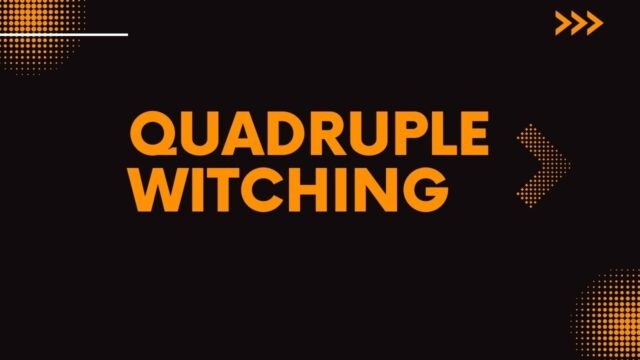
What is ‘Quadruple Witching’
Quadruple witching refers to an expiration date that includes stock index futures, stock index options, stock options and single stock futures. While stock options contracts and index options expire on the third Friday of every month, all four asset classes expire simultaneously on the third Friday of March, June, September and December. Much of the action surrounding futures and options on quadruple witching days is focused on offsetting, closing or rolling out positions, as well as arbitrage trades, with the result being elevated volume, particularly in the last hour of trading.
Explaining ‘Quadruple Witching’
Quadruple witching replaced triple witching days when single stock futures started trading in November 2002. Despite the expiration of four contract types, the terms triple witching and quadruple witching are often used interchangeably. One of the primary reasons for the heavy volume on these expiration days is trades on underlying securities are automatically executed on options expiring in the money and expiring futures contracts. Under certain circumstances, positions are opened for the purpose of executing these trades, but derivative-based traders seeking to avoid principal-based transactions must take action to prevent open positions in their portfolios from expiring.
In-the-Money Options
Call options expire in the money when the price of the underlying security is higher than the strike price in the contract. Put options are in the money when the stock or index is priced below the strike price. In both situations, the expiration of in-the-money options results in automatic transactions between the buyers and sellers of the contracts.
Closing and Rolling Out Futures Contracts
A futures contract contains an agreement between the buyer and the seller in which the underlying security is to be delivered to the buyer at the contract price at expiration. For example, Standard & Poor’s 500 E-mini contracts, which are 20% of the size of the regular contract, are valued by multiplying the price of the index by 50. On a contract priced at 2,100, the value is $105,000, which is delivered to the contract owner if the contract is left open at expiration. In this situation, contract owners can avoid delivery by either closing their contracts or rolling them out to a forward month.
Arbitrage Opportunities
Over the course of a quadruple witching day, transactions involving large blocks of contracts can create price movements that may provide arbitrageurs the opportunity to profit on temporary price distortions. Arbitrage can rapidly escalate volume, particularly when high volume round trips are repeated multiple times over the course of trading on quadruple witching days.

































